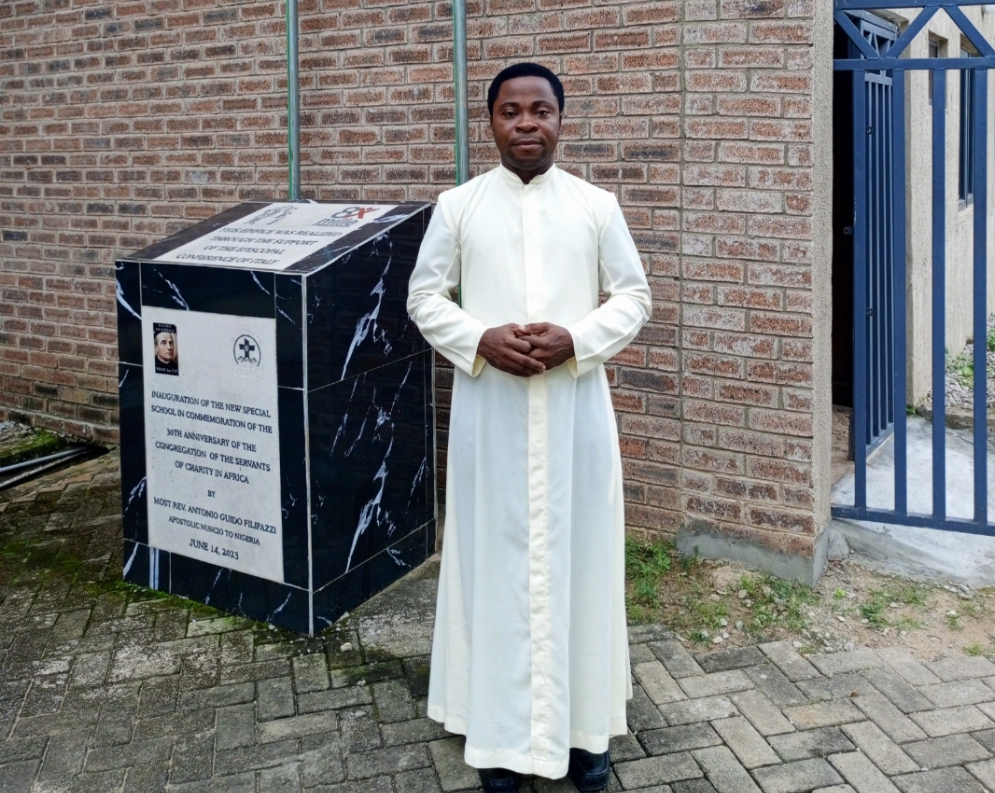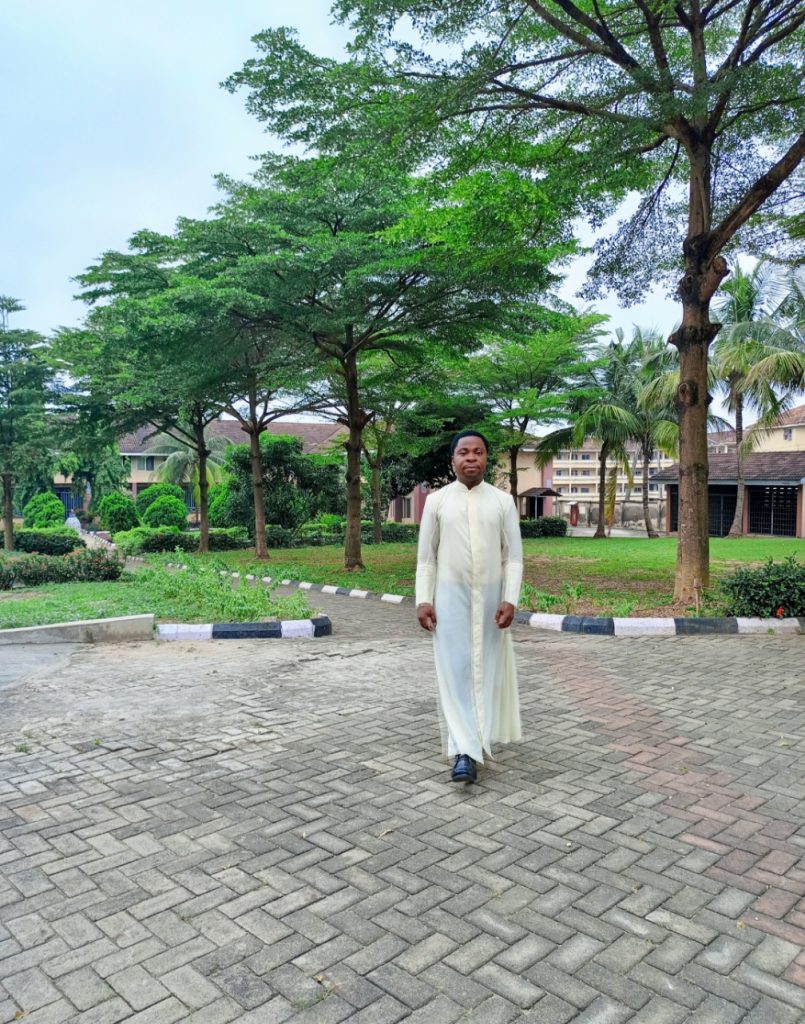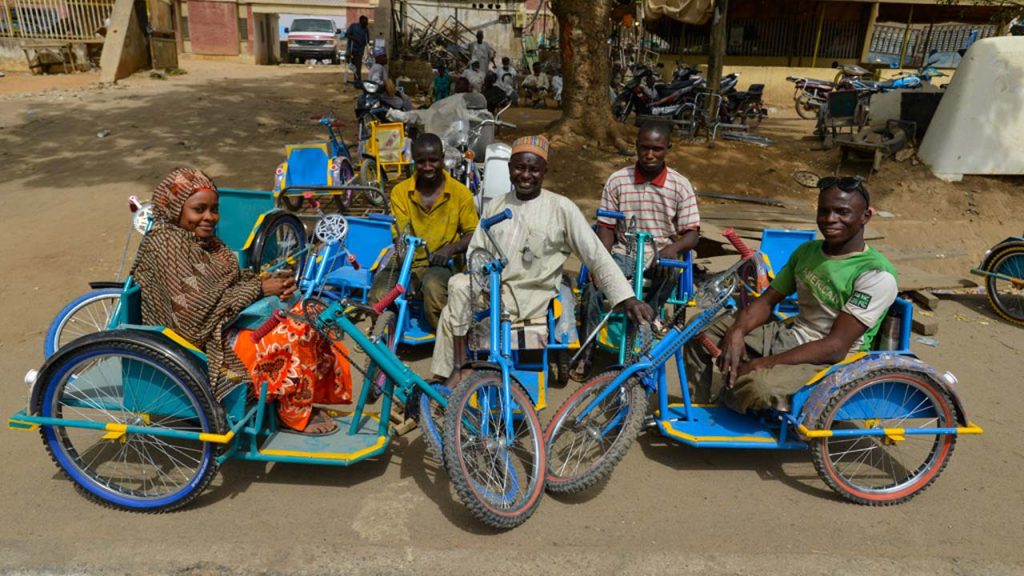
In commemoration of the year 2023 International Day of Persons with Disabilities/ World Disabled Day,
Reverend Father Lawrence Obilor, a Catholic priest belonging to the religious congregation of the Servants of Charity and an administrator of Royal College, a Catholic secondary school, in Bashorun, Ibadan has shared with The Pendulum Media in an interview the problems that confront persons with disabilities yearly.
Can you introduce yourself?
I am Reverend Father Lawrence Obilor, a Catholic priest belonging to the religious Congregation of the Servants of Charity. The Servants of Charity are priests and brothers who follow Christ more strictly by serving the poor, the little ones, and the most abandoned following the example of their founder St. Luigi Guanella, an Italian Priest and religious who lived between the years 1842 and 1915. Presently, I work in our community called House of Providence community, Yemetu, Ibadan as well as the administrator of Royal College, a Catholic secondary school belonging to the Congregation of the Servants of Charity.
What are your contributions to promoting the rights, dignity, and well-being of people with disability?
We as a religious congregation do not only preach to others on the need to respect the rights and dignity of persons with disability but we consecrate ourselves on God through the service of these little brothers of Jesus as Jesus calls them in the Gospel of Matthew 25:40, “Whatever you do to one of the least of these my brothers, you do it unto me”. Our facility is one of the best you can find at least here in Ibadan: neat house and furnished apartments for persons with special needs, and we provide quality education and rehabilitation to them. We have physiotherapy services, speech therapy services, occupational or vocational training, and lots more. Apart from living with them and offering them these services, we also educate the society to respect their rights and dignity through advocacy programs.

How often do you create awareness for people with disabilities in all political economic and social aspects?
As I just mentioned briefly, we run advocacy programs through various media and platforms. We have occasionally featured in the BCOS program, where we spoke about the persons with special needs and the need for society to be aware that these persons are not just an appendix to society but an integral part of society having every right and privilege like every other citizen of the society. We also organise an annual program titled “We ring the bell” sometimes in March or April whereby we take a walk with all the persons with disabilities under our care from the secretariat down to our center at Yemetu. It is a targeted program through which we sensitise the government and civil society about the rights and dignity of persons with disabilities and call for serious support in all ramifications.
What are the barriers people with disability face when it comes to medical attention?
Apart from the physical barriers, there is a stronger barrier that persons with disabilities face and that is the cultural barrier. Even though there is a growing awareness about persons with disability, our people are still far from absorbing them into society. This cultural barrier or stigma affects how we treat them in various areas of our society. Like in many of our public facilities, persons with disabilities face challenges in many of our healthcare centres. The story of one Ayomide Amuda published in Punch newspaper on the 18th of September, 2022 about how the Healthcare workers were lackadaisical in attending to her in terms of helping her to carry her son to the department where he could be treated because she was visually impaired. They questioned why she had to come to the hospital without bringing someone else along with her who could help her carry the son since she was visually impaired. This is one of the many ill treatments that persons with disabilities go through in our society. Many of the government hospitals don’t even have adequate facilities that help them to access Healthcare, no ralms, no lifter, and other facilities that facilitate their access to the hospitals. It is appalling to see that in this 21st century, our government has yet to come up with concrete policies to foster the rights and dignity of persons with disability especially when it has to do with accessing public space. It was not until 2019 that the law of discrimination against persons with disabilities was issued. One of the lines read: “government shall guarantee that persons with disabilities have unfettered access to adequate health care without discrimination based on disability.”
Does this work?
Sometimes, yes. But most times, no. The government needs to do more and step up on its responsibility to enforce these policies. The law also emphasises the usage of public buildings, structures, and automobiles insisting that in the next 5 years, all public buildings, structures and automobiles must be modified so that access could be guaranteed to persons with disabilities. We are almost approaching the 5th year of the publication of this law. Has this taken shape? It is a question that we have to ask ourselves. The laws have been made but have they been enforced? To what extent have the agencies in charge of fostering these laws working to make sure that theylll are implemented for the good of persons with disabilities?
How often do you ensure that the voices of persons with disabilities are held in the Parliament?
Do we need to ensure that the voices of persons with disabilities are heard in the parliament? If you have a functional government, a government with a conscience whose primary mission is to ensure the well-being of the citizens, then we cannot be discussing pushing for the things in the parliament. How many of those in the parliament truly understand the rights of persons with disability? How many of them understand the concept of disability. Are they not also products of cultural prejudice about persons with disabilities? As I said, it is not enough to make laws concerning persons with disabilities. These laws must be seen in concrete acts and situations and a good government should be able to check the activities of those who are directly involved in carrying out these policies. Does it truly happen? It is very rare.

Does the Government have plans for people with disabilities and how are they achieved, what has been the contribution of the Oyo State government towards helping children with disabilities and how has it been improved yearly?
Yes, the government has plans for persons with disabilities. The 2018 acts on discrimination against persons with disabilities which was signed into law on 17th January 2019 by then President, Muhammadu Buhari is a step to guaranteeing the rights and dignity of persons with disabilities. And the Constitution of the National Commission for Persons with Disabilities is a further step to the emancipation of persons with disabilities. This commission is to make sure that all forms of discrimination against persons with disabilities are eradicated. This includes mandating those who build public structures to follow the new building code that guarantees the accessibility of persons with disabilities in public spaces. And apart from enhancing the productivity of persons with disabilities through education, health, and other social economic activities, every public agency or company must reserve at least according to the law, 5% employment opportunities for persons with disability. And again everything boils down to enforcement of these laws because it is not enough to make laws because an unenforced law is a dead law. I think the Oyo State government under Governor Makinde is trying to empower persons with special needs at least these persons are meant to have free education and medical care. Through the State Commissioner for Information, Culture and Tourism, Dr. Wasiu Olatubosun during the recent 11th edition of music, dance, and play festival for people with special needs at the National Museum of Unity, Ibadan, the state government has renewed its pledge to improve the living standard of persons with special needs. And again, the continuous evacuation and rehabilitation of persons with special needs who are often used as instruments for begging in the streets of Ibadan is commendation.
How well are persons with disabilities empowered for a better tomorrow?
I think the growing awareness of the rights of persons with disabilities is changing the statusquo even in the just concluded general elections. We saw that one of the electoral acts of the electoral commission is that of active involvement of persons with disabilities in politics and electioneering. They are good steps though, but a lot needs to be done.
Have there been any plans to transform persons with disabilities towards a sustainable and resilient society?
Yes, the plans are embedded in both the UN policies on the rights of persons with disabilities as well as the laws of the government of the Federal Republic of Nigeria. These are meant to empower and include persons with disabilities in public affairs. For instance, the policy of reserving at least 5% of places for persons with disabilities in public/ private offices is an evidence that there is a plan to integrate them and to make them an active part of society. Certainly, we will be on the right track to achieving the SDG goals by 2023 if we succeed in carrying along the persons with disabilities in the national policies not just assisting them, but also making them an integral part of the society and offering them platforms and occasions to express themselves.
As the theme for this year implies, how do you think the SDG with the persons with disabilities can be achieved?
The government must come up with an active and measurable policy to improve the lives of persons with disability. We are talking about policies that will make them more productive and inclusive in the general affairs of the country. We need more vocational schools and skill acquisition centers for example to empower these individuals. One of the key points in the United Nations Convention on the rights of persons with disabilities is that they are allowed to be actively involved in decision-making processes about policies and programs including those directly concerning them. In 2023, according to the data collected, about 1.3 billion people around the globe who are suffering from significant disabilities are still faced with a range of barriers to social-political and economic inclusion. This simply means that there is no way the SDG can be fully achieved by 2030 without the inclusion of all and sundry. Here in our country where poverty and hardship are strongly biting hard, we will agree with me that the poor, the vulnerable, and the persons with disabilities suffer it the most.
What are the challenging experiences you have encountered and how do you deal with them?
One of the challenging experiences I have personally encountered in the field of experience with persons with disabilities is this cultural barrier as I emphasised above. Often time, the lack of education on the part of the parents and relatives of these individuals pose great difficulty in the way and manner they approach these individuals. It is often difficult to convince some of them to accept these persons with special needs. I understand that they are often stigmatised by a society that has little or no understanding of disabilities and does little or nothing to improve their well-being. However, our practical life of testimony as a religious congregation in accepting and working with these persons, and our continuous advocacy have been productive and positive in bringing enormous transformations in the lives of those who come in contact with our realities.

What sets your organisation apart from others?
We are not just an organisation, we are a religious congregation, a catholic institute, animated by the spirituality of our holy founder St. Luigi Guanella. Therefore, we do not operate as an NGO or some kind of humanitarian organisation. Our services to persons with special needs are inspired and animated by the gospel. The Gospel pages of Luke chapter 10 and John chapter 5 respectively define both the nature of our work and the category of persons we are primarily sent to work with.
In the poor and the most abandoned, we see not just a human person but an Imago Dei (the image of God), and the wounded face of Jesus. The driving force and passion for our services is the dictum of our founder: “We cannot stop as long as we have the poor to help and many sufferings to relieve.”
Follow us for more stories…